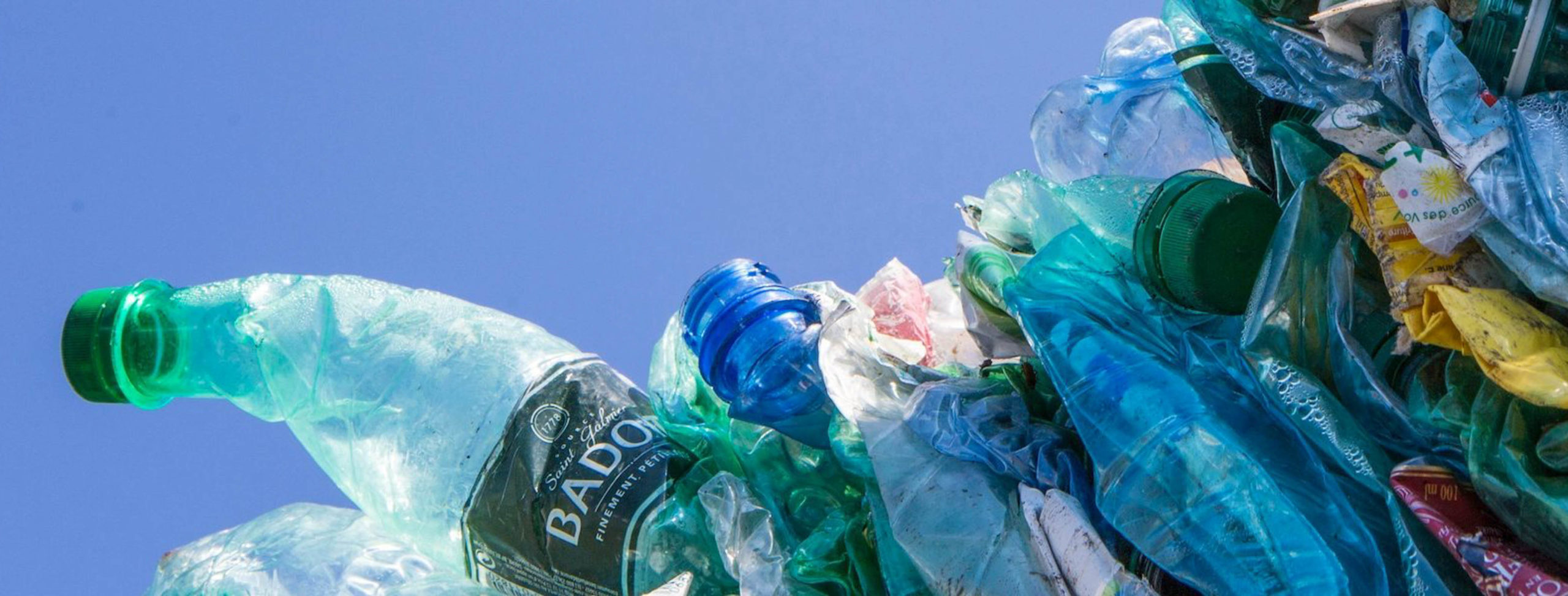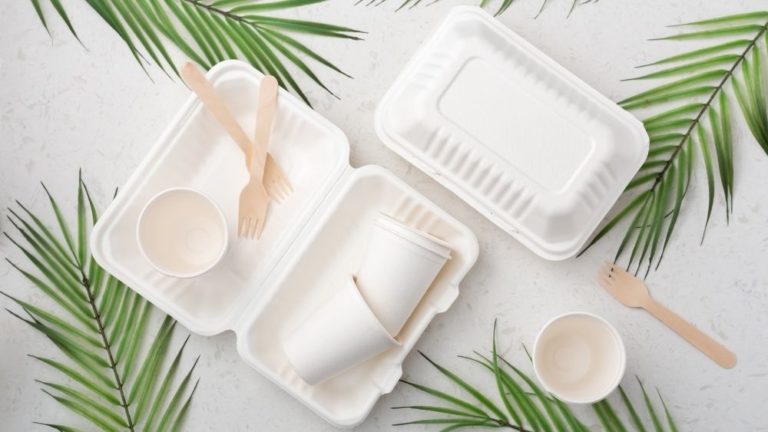rPET
Obviously, you must be aware that tons of dechets are rejected every year due to our lifestyle and our consumption. Recycled or often thrown directly on the environment, these wastes are mostly plastics. Between 5 and 13 million tons of plastic are thrown into the ocean every year and ingested by birds, fish and different types of organisms.
According to a case study(Ellen MacArthur), by 2050, the ocean should contain more plastic than fish in terms of weight… One of the solutions to meet the needs of populations overseas while respecting our environment is recycling. Recycling is seen as a key action lever to control our ecological footprint and reduce waste for next years. It this way, the zero waste trend was born to adopt more responsible and sustainable attitudes (See article) and rPET have been put into force.
Excessive consumption of single-use plastic bags is more and more targeted, but they are not the only responsible for all this accumulation of plastic waste. Actually, plastic bottles are also a big deal ! Indeed, they generate a significant impact on our environment, just like all plastic bags and sacks. Each year, 89 billion liters of water are bottled and consumed by households. It means that every second about 2822 liters of bottled water is consumed and every minute a million bottles are bought. It is estimated that these figures will increase by 20%, by 2020. For the agro-food industry this product is a real success. Bottled water continues to attract and retain more and more consumers. The Americans are the first consumers in the list at the same time that the French are big exporters. Between 2000 and 2005, China saw its consumption of plastic bottles be multiplied by three. This can be explained by the sharp rise in the trend “on the go” widening in household lifestyles.In addition, brands such as Coca Cola, which produce a large number of plastic bottles, are targeted by organizations such as Greenpeace, which denounce their environmentally harmful activity. Indeed, the giant Coca Cola produces more than 100 billion plastic bottles per year, or 3,400 per second. However, according to a Greenpeace study, for the market-leading beverage market, it was established for 6.6% of recycled materials used in the production of pellets.This is PET (polyethylene terephthalate) Which is a recyclable material known as RPET. Moreover, this use of recycled material won’t increase for the years to come … Indeed, the brands do not want to increase the quantity of recycled material. Their pretext is that this impairs the aesthetics of the final product.
Sustainability has become a main challenge for the major brands of the beverage market such as Coca Cola or Innocent (brand of fruit juices). Indeed, it is a suitable argument to improve their brand image! According to the two brands mentioned above, by 2020, we should drink our soda and our fruit juices in bottles made up of at least 30% recycled plastic. However, other brands already offer products composed of 100% recycled materials! No choice for companies to be part of this race ! In fact, due to the general awareness of consumers who care more and more about their ecological footprint, everybody must change their habits and compagnie must be an example. Thus, in this perspective, rPET bags have been developed. They are the equivalent of our non-woven polypropylene bags more commonly known as shopping bags. Resistant, waterproof, useful and adjustable, these RPET shopping bags are more expensive than other grocery bags. This is a small “investment” will convince you as soon as you will buy it. RPET bags have already convinced many consumers. These bags made of recycled materials are also reusable so they match perfectly with the sustainable development project. Think about it next time!
LINKS :
https://www.packagingnews.co.uk/news/innocent-commits-to-30-rpet-for-all-packaging-13-12-2016
http://gulfnews.com/culture/environment/a-million-plastic-bottles-a-minute-1.2053535
https://www.planetoscope.com/dechets/321-consommation-mondiale-de-bouteilles-d-eau-en-plastique.html
http://www.aboneobio.com/blog/post/2017/07/05/Adieu-petrole-bonjour-plastique-vegetal





